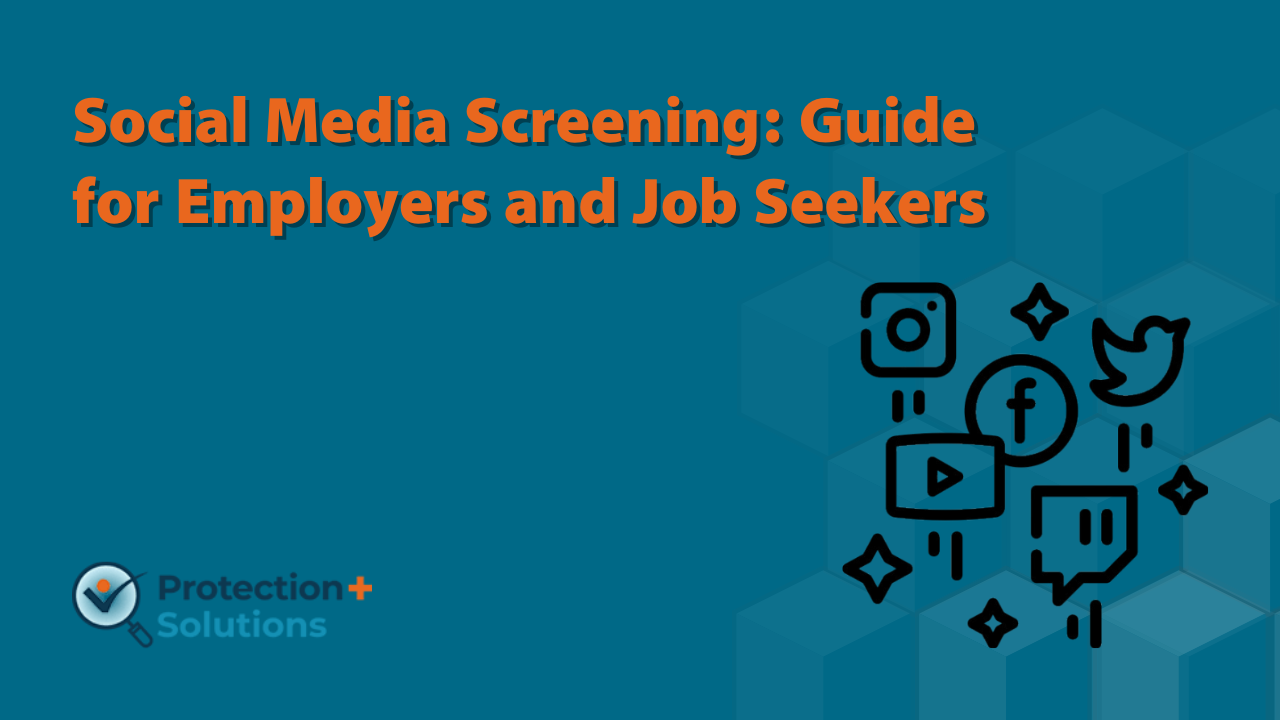Social Media Screening: A Complete Guide for Employers and Job Seekers

Your social media accounts are more than just a place to post vacation pictures or share memes—they’re a window into your personality, values, and lifestyle. Social media screening is the process of reviewing someone’s online presence to gather insights about them, and it’s becoming a major player in hiring and recruitment.
What is Social Media Screening?
Social media screening involves checking public social media activity to assess a person’s character, background, and suitability for a role. Employers, landlords, and even scholarship committees might use it. It’s not hacking—only publicly visible or consented-to information is reviewed.
Why is Social Media Screening Important Today?
With so much of our lives online, traditional background checks only tell part of the story. Social media screening helps fill in the gaps by showing how someone communicates, interacts with others, and represents themselves in the digital world.
The Growing Role of Social Media in Hiring Decisions
How Employers Use Social Media to Evaluate Candidates
Recruiters don’t just want to see your qualifications—they want to understand your personality. Social media can reveal:
- Communication style
- Professional network
- Involvement in industry-related discussions
- Red flags like unprofessional behavior or discriminatory comments
Key Platforms Used for Screening
- LinkedIn – Professional skills, endorsements, and career history.
- Facebook – Personal interests, public posts, and group memberships.
- Instagram – Lifestyle, hobbies, and branding consistency.
- X (formerly Twitter) – Public opinions, engagement with communities.
Benefits of Social Media Screening
Identifying Cultural Fit
Company culture matters. Screening can help ensure a candidate’s values align with the workplace vibe.
Validating Resume Information
A LinkedIn profile can back up (or contradict) what’s on a CV. Matching dates, roles, and achievements build credibility.
Spotting Red Flags Before Hiring
Inappropriate language, offensive posts, or signs of dishonesty can be detected early—saving costly hiring mistakes.
Risks and Challenges in Social Media Screening
Privacy Concerns and Legal Implications
Different countries and states have varying laws on how much social media information employers can use. Overstepping can lead to lawsuits.
Potential for Bias and Discrimination
An innocent post or personal detail might unconsciously influence a hiring decision, leading to unfair outcomes.
Misinformation and Context Misinterpretation
A single out-of-context post can paint a misleading picture. That’s why trained professionals often handle screenings.
Best Practices for Social Media Screening
Establishing a Clear Screening Policy
Employers should define:
- Which platforms to check
- What content is relevant
- How findings are documented
Using Third-Party Screening Services
Specialized agencies can conduct screenings legally and ethically, minimizing bias and privacy violations.
Ensuring Compliance with Data Protection Laws
Regulations like GDPR (Europe) and CCPA (California) require explicit consent before processing personal data.
Social Media Screening for Individuals
How to Prepare Your Profiles for Potential Employers
Audit your accounts regularly. Search your own name to see what’s publicly visible.
Content You Should Avoid Posting Publicly
- Offensive jokes
- Political rants (unless relevant to your career)
- Excessive partying or irresponsible behavior photos
Building a Positive Digital Footprint
Share achievements, write industry-related posts, and engage respectfully in online discussions.
The Future of Social Media Screening
AI and Automation in Candidate Screening
AI tools can quickly scan thousands of posts for keywords, sentiment, and patterns—speeding up the process.
Ethical Considerations for the Future
Automation raises questions about fairness, data use, and personal freedom—topics that will only get hotter in HR debates.
Conclusion
Social media screening is here to stay. For employers, it’s a powerful tool to evaluate potential hires beyond the resume. For job seekers, it’s a reminder that your online presence is part of your professional brand. Handle it wisely, and it can work in your favor.

